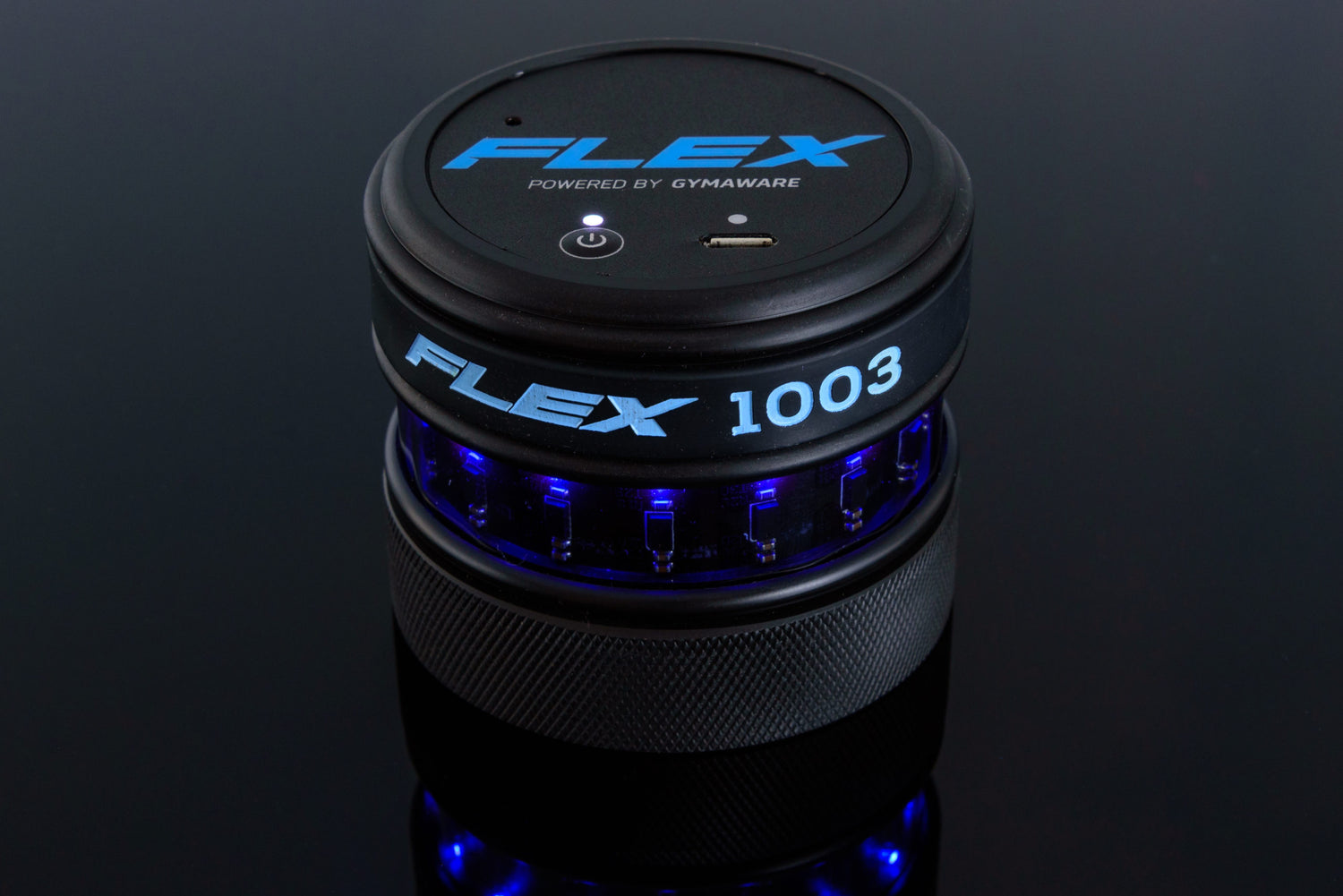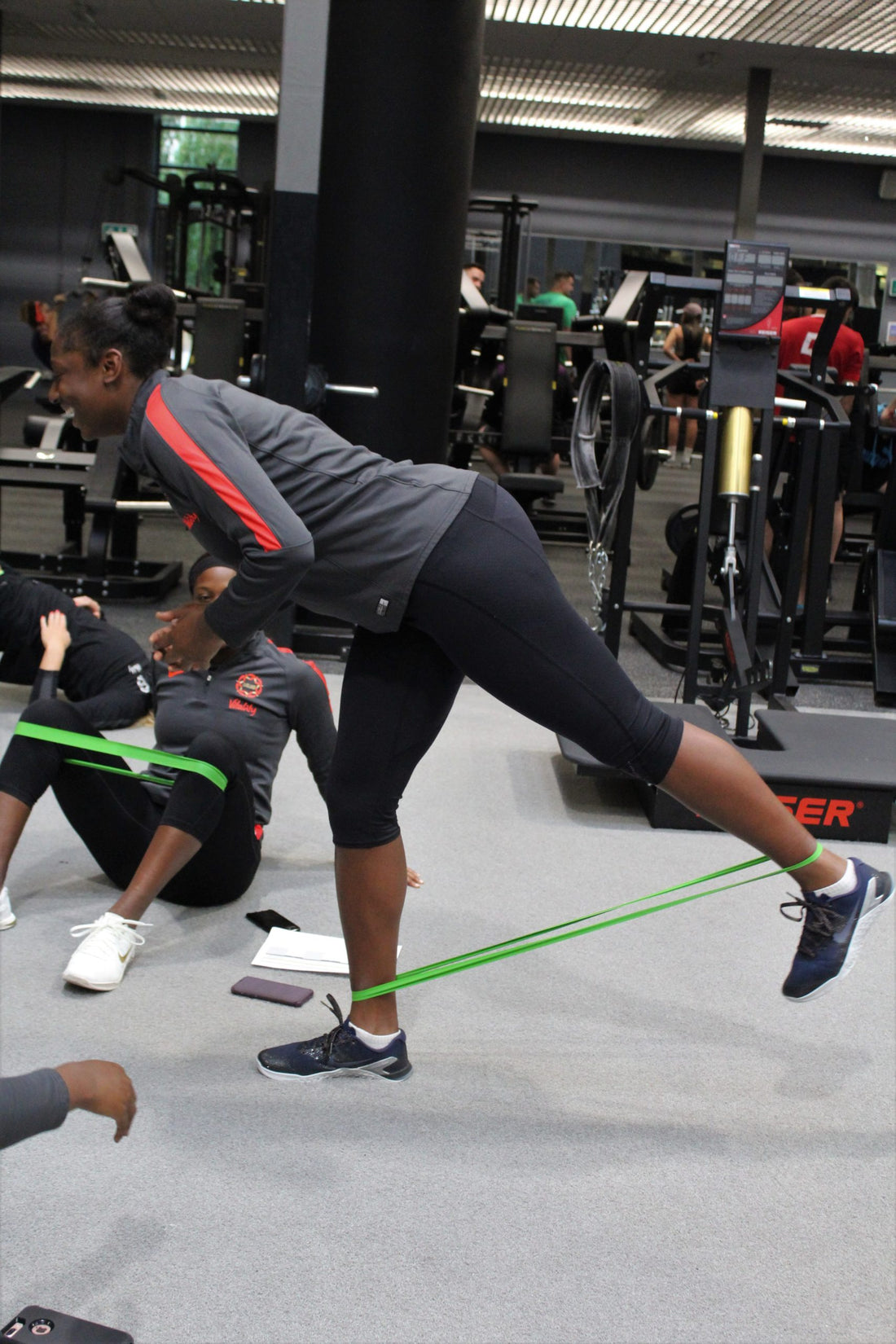The biggest difference, though, is that resistance bands do not rely on gravity the way that free weights do. Instead, you’re working against the force of just the band. That might sound easier, but what it means is that you’re working against resistance throughout the entire range of an exercise, not just during the portion where you’re moving against gravity.
For example, if you are doing a squat with a mini band around your quads, you have to press your legs against the band even when you’re standing in the starting position. You have to then press out when you’re lowering into a squat, and again when you’re standing back up, to keep your knees in line (not collapsing in toward each other). Because of this, your muscles are often under tension for an extended period of time when bands are involved, which means they’re pretty much constantly working. If you’ve ever done glute bridges or lateral walks with a mini band looped around your legs, you know that the burning sensation sets in almost immediately—that’s because you’re never really giving your muscles a solid break until you actually stop doing the exercise.
There are a ton of easy ways to use mini bands
First, they’re great for warm-ups before a workout, and especially for activating your hips before a run. A lot of mini band exercises make it easy to target your glute medius, a small hip abductor muscle on the outer side of each butt cheek. Its main job is to stabilise both the hip and the thigh as your leg rotates with every forward step.
You can also use mini bands to warm up your upper body. This can be specifically beneficial for an area like the shoulder, which is notoriously unstable and can benefit from a targeted warm-up before you nail it with a heavier weight.
And you can even use mini bands as the main source of resistance for your workout. If you’re using mini bands for a workout (here’s a great one you can try!), it’s easy to progress—meaning, increase the resistance over time to keep challenging and strengthening your muscles—by graduating to stronger bands as the workout starts to feel easier. You can also use different bands for different muscle groups if you feel you need a slightly different level of resistance.
Read more HERE from SELF
If we have inspired you to add resistance bands to your routine check out our renowned MINI BANDS
For the latest on Perform Better, follow us on Facebook, Instagram or Twitter
https://performbetter.co.uk/the-best-home-workout-equipment-personal-trainers-swear-by/
https://performbetter.co.uk/top-10-mini-band-exercises/



































